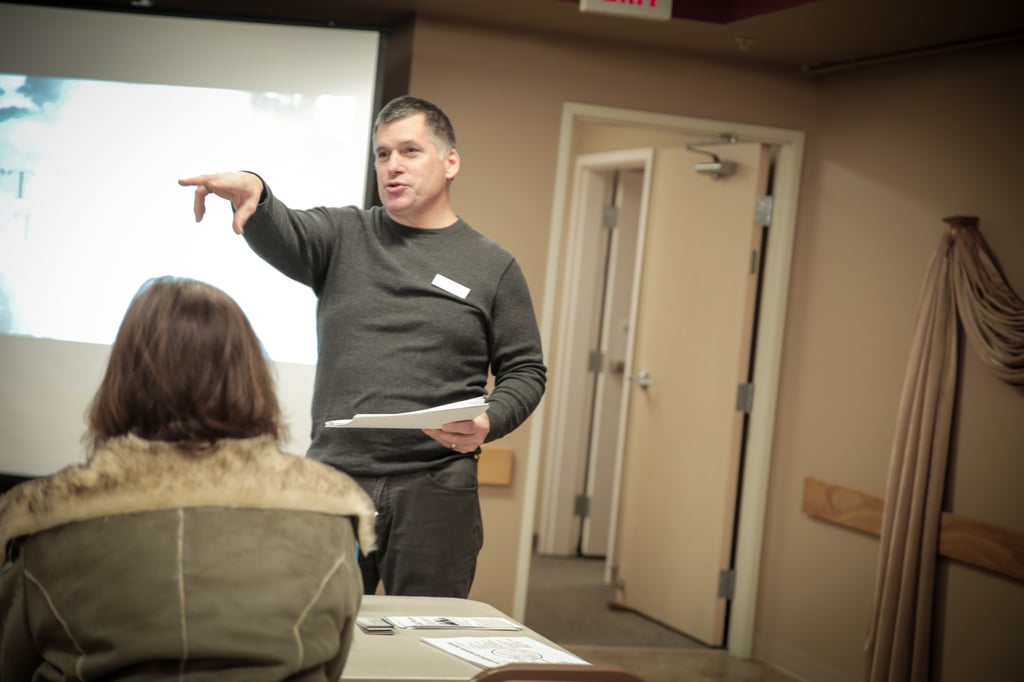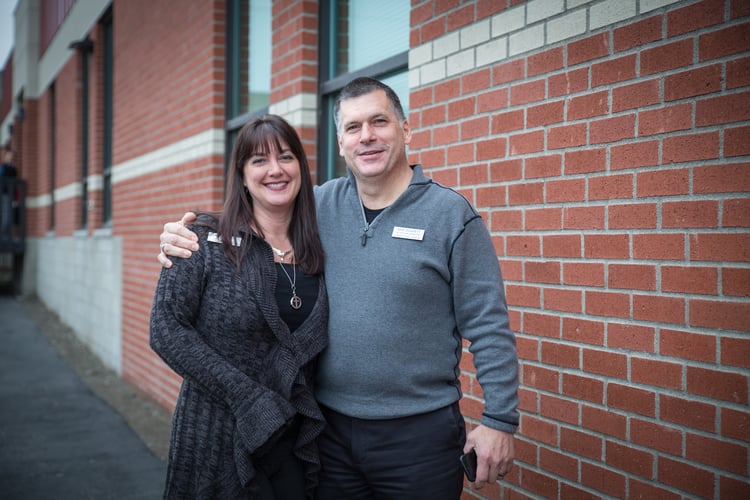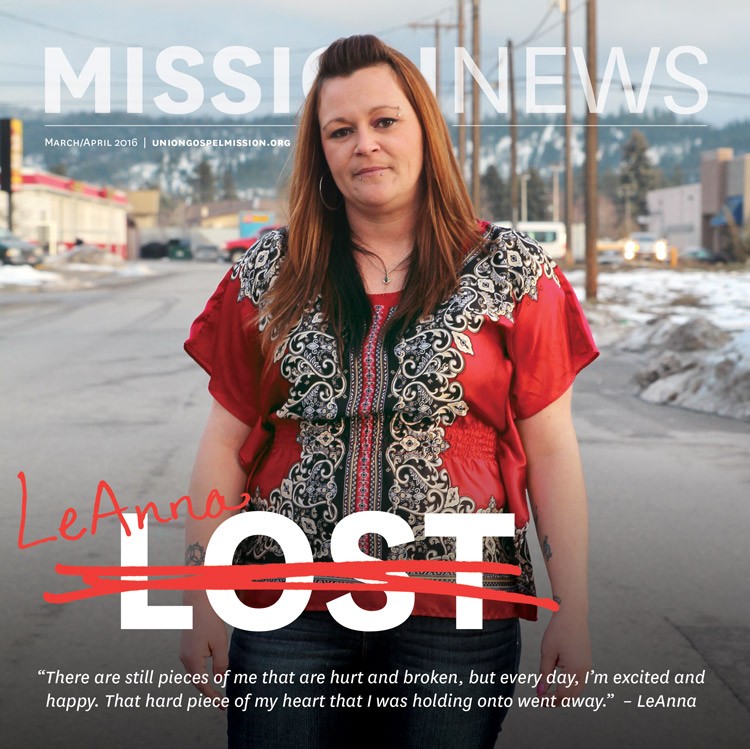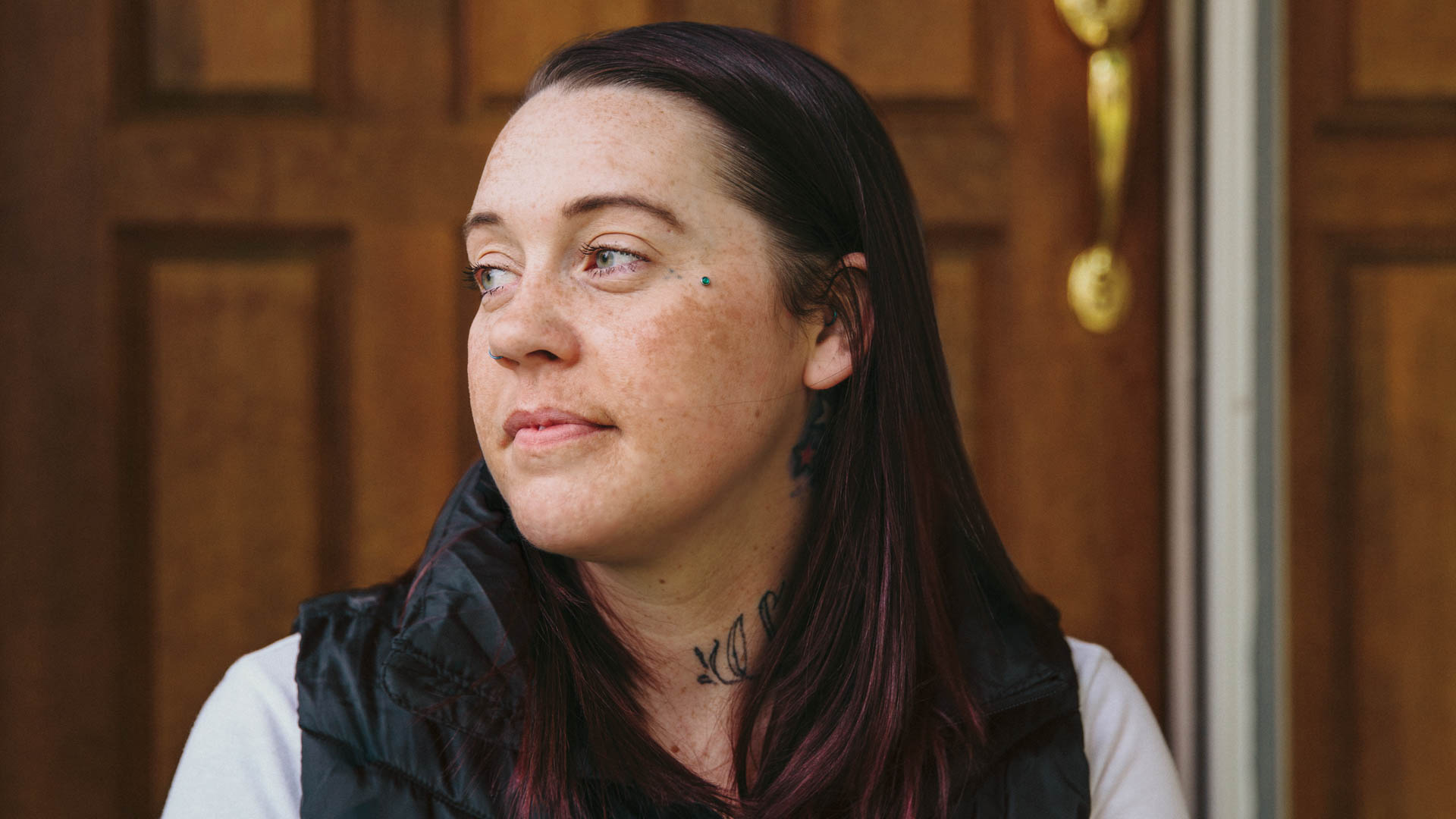2 min read
Gospel-Centered from the Start
“Let us hold unswervingly to the hope we profess, for He Who promised is faithful…Jesus Christ is the same yesterday, today, and forever.” (Hebrews...
By Mike Doggett, UGM Aftercare Manager
In 1994, I white knuckled it!
I was told that I had a drinking problem, and rather than accept this prognosis, I decided to show those around me that I was different than other alcoholics and addicts, that I could handle this myself. This attitude followed me to the Alcoholics Anonymous meetings that I attended where I always compared myself to the others, looking for our differences rather than finding the similarities.
I would use the excuse that you hear so often from those who have yet to do step 1 (of the 12-step process), “I don’t go to meetings because all you hear is the same story of why John Doe relapsed, and it made me want to drink more after the meeting.”
I had myself convinced that all I needed to do was quit drinking and everything else would fall into line. 12-step meetings were for those who were not strong enough to handle this on their own.
I was suffering from terminal uniqueness.
In 1998, I got onto a 747 heading to Japan for lean manufacturing training and within 20 minutes of sitting down in my first class seat, I was downing a glass of champagne. My permission-giver: I had shown I could handle alcohol by abstaining for four years, and I was going to be out of the country, so nobody would know anyway. That one glass of champagne turned into seven days of total drunkenness culminating in a loss of position and status after my return to work and a 180-day intensive outpatient treatment program.
That one glass of champagne turned into seven days of total drunkenness culminating in a loss of position and status after my return to work and a 180-day intensive outpatient treatment program.
So where did I go wrong? I abstained from alcohol and drugs for four years! Wasn’t this enough time for my body and my brain to heal, and shouldn’t I have been able to drink like the normies?
In The Big Book of AA, on page 58, “Those who do not recover are people who cannot or will not completely give themselves to this simple program, usually men and women who are constitutionally incapable of being honest with themselves.”
I had succumbed to the belief that I was in control of my addiction, that I could manage it. After four years of abstinence, I had determined that somehow, “It would be different this time.” I failed to admit that I was powerless and my life was unmanageable.
In a video on the first step, Father Martin says, “The depth and the seriousness that you work this program depends directly upon the depth and the seriousness with which you work step one.”
I had stopped drinking in 1994, but I held onto the idea that I could control this addiction myself. I look back today and realize I had failed to actually do step one of the 12-step program. I failed to admit that I was powerless, holding onto the idea that I could and would control my addiction.
As the UGM Aftercare Manager, I am blessed with the opportunity to meet with each programmer from Anna Ogden Hall, the Center for Women and Children and Men’s Recovery as they prepare to complete our Life Recovery program.
In doing a “relapse prevention plan,” I often hear the person say, “I have this figured out,” or “I am past the point of needing meetings,” or “I have absolutely zero cravings for that drug anymore.” I have heard those very words that I used to say, “I don’t go to meetings because all you hear is the same story of why John Doe relapsed and it made me want to drink more after the meeting.” In his video, Father Martin also points out that addiction is a terminal illness. Only when a person understands this deep in their gut will they truly be able to work towards lifelong recovery.
In his video, Father Martin also points out that addiction is a terminal illness. Only when a person understands this deep in their gut will they truly be able to work towards lifelong recovery.
In 1994, I bought The Big Book, read the first step and quit drinking without ever truly admitting that I was powerless over my addiction. I never truly did step one, feeling I was unique from every other alcoholic/addict in that I was in control.
I have been clean and sober for over 18 years now…I still have cravings…there are places I absolutely will not go, like a sports bar…and most definitely, I still need meetings. As addicts/alcoholics, we have got to get to that point where we feel deep in our gut that there are things we can never, ever do again and things we must do for our ongoing recovery.
I go to 12-step meetings now, not to point out the differences – why I don’t need to be there – but to look for the similarities I have with each individual in that meeting.
Out of 100 meetings, 99 of them may feel like you didn’t get much. But there is a very high probability as an alcoholic/addict that at one of those meetings, you will be talked off the ledge of relapse, and that makes all 100 worth it.
We have recently started our own UGM Recovery for Life 12-Step meetings, where we hope to provide a safe and healing environment for those desiring a life of sobriety. Our meeting is Christ-centered and welcomes UGM guests and the general public.
In planning this meeting, we held onto this question from our Executive Director, Phil Altmeyer: “If a person came to the door of the Mission seeking help for his addiction, what would Jesus do?”
I believe Jesus would welcome him. We want to be that meeting where our arms are open wide, inviting those who truly desire transformation and a lifetime of sobriety. We want to emulate Jesus and offer that ray of hope so many have lost.
If you desire to have what many of us at UGM have found, I would encourage you to come check out one of the following meetings:
Recovery for Life 12-Step Open Meeting for Women

2 min read
“Let us hold unswervingly to the hope we profess, for He Who promised is faithful…Jesus Christ is the same yesterday, today, and forever.” (Hebrews...

9 min read
To celebrate 75 years of serving the Inland Northwest, we are spending the year remembering our history and the faithfulness that built us and...

2 min read
In 2026, Union Gospel Mission Inland Northwest is approaching our 75th Anniversary! This is a milestone that invites gratitude and reflection, and...

At Union Gospel Mission, healing often begins with looking back. As part of our Life Recovery Program, participants are invited to reflect on their...

Throughout her life, LeAnna Vargas was repeatedly treated as though she had no value, and eventually, she began to believe she didn’t. Feeling...

What does it take to change? How do you break a twenty-year addiction? How do you stop being angry and resentful for all the ways you feel like life...